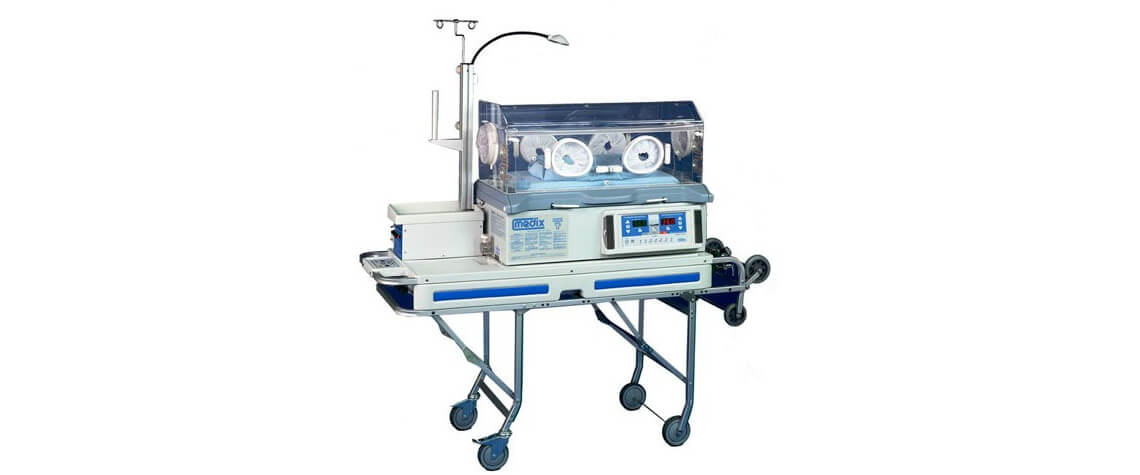
Featured Equipment Transport Incubator
Air Ambulance service and emergency ambulance service, have been discussed in previous blog posts, and this time around we are moving onto another emergency medical equipment known as ambulance transport incubator.
What is an ambulance transport incubator?
These are specialized incubators for ambulances, exclusively meant for transferring neonates to intensive care facilities. This equipment is light-weight, versatile, noise-free and is tailored with many more features to ensure a safe transfer of the baby.
Why do you need an ambulance transport incubator?
Sick newborns need immediate treatment since they are very sensitive and have less immunity. Past experiences have shown that prompt intervention and treatment increases an infant’s chances of survival. In most cases the need for a transfer becomes clear only when the baby’s condition deteriorates and reaches a critical phase.
During such conditions a regular transfer is not advisable. Continuous medical care and nursing supervision is needed for the infant in these situations. The regular transfer is devoid of sufficient equipment and medical professionals whereas ambulances with transport incubator will have all the features to ensure a safe transfer of the baby.
What facilities does it offer?
The transport incubator will include all ICU monitoring facilities such as assisted ventilation, continuous oxygen administration, intravenous infusion, etc. Along with these facilities there would also be a medical team which would include a pediatrician and a trained nurse who is experienced in neonatal care.
After receiving a call the transfer team will meet you at your destination and transfer the baby to the referred hospital.
Which infant needs a transport incubator?
At first a team of medical professionals asses the baby’s condition and check for the facilities and medical support needed during the transfer. The baby which needs special supportive and diagnostic facilities will be recommended for a transfer with a transport incubator to avoid any serious complications. The consulting doctor makes the final call. Every hospital differs in their level of neonatal facilities, but in most places the following criterions are considered for a transfer in a transport incubator -
Care provided during transfer in a transport incubator
During the transfer a well-trained neonatal nurse will look after the child. The incubator is a very sophisticated piece of medical equipment which will constantly monitor the health of the infant. The following features is available –


